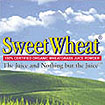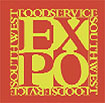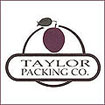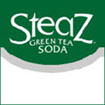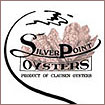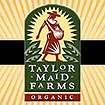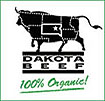|
U.S.
Supreme Court allows Napa wine label law
Franzia's
Bronco Wine Co. loses final appeal,
clearing way for implementing of state's
truth-in-labeling statute
By
KEVIN MCCALLUM
THE PRESS DEMOCRAT
A
legal battle over a state law requiring
Napa-labeled wines be made from Napa grapes
ended Monday when the U.S. Supreme Court
refused to consider a challenge to the law
by a wine giant famous for its popular "Two
Buck Chuck" brand.
The
decision paves the way for California's
truth-in-labeling law to be implemented
more than five years after it was passed
by the Legislature.
It
marks the final blow to the long legal fight
against the law by maverick winemaker Fred
Franzia and his Ceres-based Bronco Wine
Co.
"It
certainly is the end of this case,"
said Peter Brody, an attorney for Bronco.
"There is nowhere else to go."
The
Napa Valley Vintners, the trade group that
pushed for the 2000 law and spent an estimated
$1.5 million to help defend it, celebrated
the decision as a victory for consumers
and Napa's wine industry.
"We
are absolutely thrilled with the news,"
said Linda Reiff, executive director of
the group. "Now the 2000 law is taking
effect in 2006."
State
Sen. Wesley Chesbro, the Arcata Democrat
who authored the law, also praised the court's
decision.
"This
is a victory for wine consumers that will
provide them with truth in advertising,"
he said. "If it says Napa on the label,
it must be Napa in the bottle."
The
2000 law closed what many saw as a loophole
exempting as many as 32 wine brands from
federal laws requiring wines using geographic
brand names to contain 75 percent grapes
from that region.
Under
federal law, brands in existence before
1986 were grandfathered, allowing them to
continue using geographic place names on
their wine labels even if they were made
from grapes from other regions.
In
Bronco's case, its Napa Ridge, Rutherford
Vintners and Napa Creek Winery brands were
all being made from cheaper Central Valley
grapes. The Rutherford Vintners and Napa
Creek brands since have switched to using
at least 75 percent Napa grapes, while Napa
Ridge continues to be produced using Central
Valley grapes, Bronco spokesman Harvey Posert
said.
Bronco
also produces the popular $1.99 Charles
Shaw brand, nicknamed "Two Buck Chuck,"
sold at Trader Joe's supermarkets.
Napa
vintners argued that Bronco, while following
the letter of the law, tried to give its
wines the impression of being from Napa
when they were not, thereby misleading consumers.
This included locating a bottling facility
in Napa and importing its Central Valley
grapes to be crushed in Napa.
"This
undercuts the reputation of Napa Valley-grown
products while trading on the cache of the
renowned wine growing region," Reiff
said.
Franzia
fought the law because he felt it was singling
him out.
"He
paid a lot of money for the Napa Ridge brand,
and he felt very strongly that this law,
which only came up after the transaction,
was unfair and targeted at him and it wasn't
right, and he wanted to take a stand,"
Brody said.
The
appeal focused on whether a state had the
right to restrict a business practice that
was specifically allowed under federal law.
The California Supreme Court ruled the regulation
of alcohol has a long history of overlapping
state and federal restrictions. I n August
2004, it concluded the state, in this case,
was justified in passing more restrictive
rules.
Both
the state and U.S. supreme courts rejected
Bronco's previous appeals. Bronco's next
move remains unclear.
"Bronco
Wine Company is disappointed with the Supreme
Court's denial of its request to review
the state court's erroneous ruling on our
claims," Posert said. "Bronco
Wine Company, however, intends to maintain
all of its brands, and will do so in full
compliance with the law."
One
option that was raised in legal filings
would be to move production of Napa Ridge
wines out of California, where the state
law would not restrict those wines from
being produced with non-Napa grapes, Brody
said.
Other
options including ceasing production of
Napa Ridge entirely or sourcing the wine
from Napa grapes.
"I
think Fred is considering his options,"
Posert said.
When
and how the 2000 law will be implemented
also is unclear. That responsibility will
fall to the state Department of Alcoholic
Beverage Control, which has not decided
how it will act, spokesman John Carr said.
Reiff
said she hopes the delays are finally over.
"I
think that, since the law was passed 5_
years ago, everyone has been put on notice
that this was in process," she said.
"Enforcement should take effect immediately."
Copyright
© 2006 THE PRESS DEMOCRAT
|





